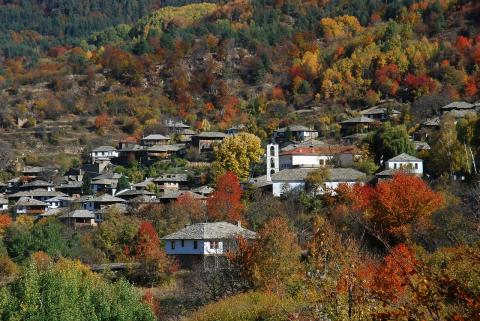Webinar: Reaching climate neutrality in Bulgaria and Romania
This webinar discussed the role of long-term climate strategies in Bulgaria, who recently published her LTS, and Romania, whose strategy is still in working mode. Mihnea Cătuți and Luciana Miu from the Energy Policy Group in Bucharest presented their research on Romania and Bulgaria. Matthias Duwe, Ecologic Institute, Germany and Radostina Primova, Centre for the Study of Democracy, Bulgaria, then gave insights on the role of LTS in the European context. The panel discussion was followed by a Q&A session with the audience.
Long-term strategies are key instruments for transforming the economies of Member States and achieving the EU’s ambitious climate neutrality goals. However, the relatively loose guidelines of European regulations governing these strategies have led to wide variations in their scope, specificity, and concreteness across Member States. Strategies which fall short of providing concrete emissions reduction targets will face more challenges in implementing and governing the transition to climate neutrality, especially if they fail to underpin these targets with forward-thinking policies and measures with adequate planning around financing, R&D and the mitigation of socioeconomic impacts. This is the case for Bulgaria, a country with a substantial coal legacy and continued high carbon intensity of its economy.
Bulgaria’s long-term strategy, published in late 2022, builds upon economy-wide and sectoral emissions trajectories, modelled in 2020 using the same tool as its National Energy and Climate Plan (NECP). It does not set emission reduction targets, but rather presents the projections of emissions levels in 2050, and does not set a target for reaching net zero emissions. Generally, EPG’s report findings indicate that the strategy is more or less a continuation of the NECP and is placed in the now-outdated policy context of 2020, failing to reflect significant step-changes in EU policy ambitions – including the Fit for 55 package and the RePowerEU agreement. The measures and policies proposed thus risk being misaligned with the long-term trajectory that Bulgaria should be on, creating lock-in effects and delaying meaningful climate change mitigation. Another key aspect of the LTS is that it provides insufficient detail on the implementation of proposed policies and measures for decarbonization, including financing mechanisms, the mitigation of social and economic impacts in Just Transition regions, and an adequate governance framework including responsible institutions. As it provides partial coverage of most components of the assessment framework, the LTS receives mostly middling scores – however, key aspects of these components are missing, leading to significant uncertainty as to the role it will play in Bulgaria’s transition to climate neutrality.
Romania still needs to publish its LTS on how decarbonisation will be achieved by 2050. The Romanian LTS should firstly be centered on a clear commitment to net zero GHG emissions by 2050 and set itself the ambition of reaching it even earlier. It should not shift the burden of emissions reductions to later decades but focus on higher emissions reductions in earlier years. Secondly, the LTS should provide sectoral targets and mitigation pathways, using scientifically robust scenarios for sectoral and economy-wide emissions reductions. These scenarios should account for the particularities of the Romanian context, for example in terms of technology availability and applicability and behaviour change potential. Thirdly, enabling measures such as financing and R&D should be properly addressed, and a detailed evaluation of the socio-economic impact of proposed measures should be provided. Find the complete report on recommendations for the Romanian LTS here.
